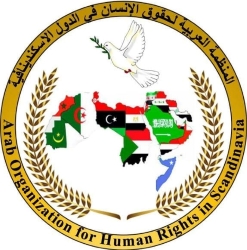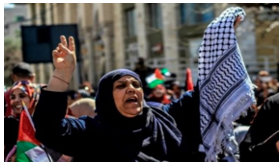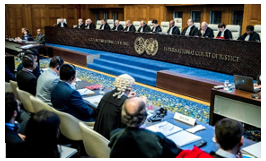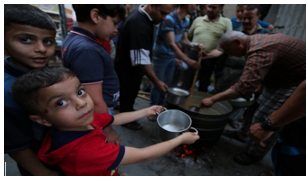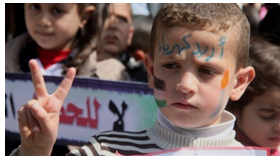Online conference on the future of Arab-Iranian relations

In light of the bitter and oppressive conditions that the Arab region that has been going through for decades, especially after the US-Iranian occupation of Iraq in 2003 [Iraq which was the safe fence of the Arab nation], and the subsequent Iranian incursion into Syria, Yemen and Lebanon, through its militias that wreaked havoc, destruction and killings, and decades before that, the Ahwazi land occupation. This incursion, domination, and robbery of rights reversed the balance of power and produced imbalanced relations between Iran and the Arab system, where the points of contention became much larger than the points of convergence against the backdrop of Iran’s expansionist and aggressive policy, which disregards all international covenants that regulate relations between states based on respect for the sovereignty of states and not to interfere in their affairs.
To discuss The future of Arab-Iranian relations and their repercussions, the Arab Organization for Human Rights in Scandinavia held an Arab-British online conference, in which Mr. Graham Williamson, executive member of National Liberal Party, participated on December 19, 2021, and in cooperation with:
- Ahwazi Centre for Human Rights
- Gulf Centre for Iranian Studies in Cairo
- The Daymoma centre for studies and research in the Kingdom of Saudi Arabia
- Haqqi Centre for Supporting Rights and Freedoms in Geneva
- The Arab Council for Academics and Competencies
- Association of Afro-Asian Universities
- The Union of Iraqi Elites and Academics
In addition to the participation of media outlets represented by the newspapers, “Euro-Times”, “The Cardina”, and “Iran Post”, the attendance of the conference was graciously honored by the Mr. Graham Williamson, the executive member of the National Liberal Party, and Dr. Turki Al-Qublan, Vice-President of the Council on Arab International Relations in Kingdom Saudi Arabia . The seminar was successfully moderated by Ms. Lisa Al-Badawi from Yemen, who is the Secretary-General of Haqqi centre to Support Rights and Freedoms in Geneva, with her colleague, Mr. Reda Abu Safwan Al-Ahwazi. A group of specialists in the Arab-Iranian affairs participated in the dialogue of the conference, whose names are listed below:
1- Mrs. Samira Houry
The Yemeni media and human rights activist spoke about the horrific and dangerous violations committed by the Houthi militia against the people of Yemen, which affected her personally by arresting her in a secret prison and subjecting her to the worst types of psychological and physical torture. She also narrated about many girls who committed suicide, or miscarried their fetuses, and some of them were raped, and some of them were forced into the jihad of marriage.
2- Professor Abdul Salam Al-Taie
In his paper tagged: “Iraq [war booty] in Iran’s tradition”, he reviewed Iran’s aggressive and criminal retaliatory behaviour through the liquidation of Iraqi competencies, highlighting the serious violations of human rights by Iran in Iraq, Syria, Yemen, Lebanon and the Arab Ahwaz, not to mention the genocide And sectarian ethnic cleansing and forced displacement, which is a war crime against humanity according to the Rome Statute – 1998, which is still without any international deterrence, and Professor Al-Taie touched on the high rate of unemployment and poverty, according to the statistics of the Government of Iraq, for the year 2020, where the government indicated that the unemployment rate And poverty in Shiite areas only, amounted from 70% to 77%. As a result of the violation of human dignity, poverty and unemployment, the youth of Iraq rose up in Shiite areas against Iran and its government in Baghdad in 2019, which preceded it in Sunni areas such as Anbar, Baghdad, Mosul, Diyala, Salahuddin and Hawija in Kirkuk.
Dr. Al-Taie also identified the regional and international geopolitical goals of Iran by creating a demographic wall between Tehran, Baghdad, Damascus, Beirut and Sana’a, to be present on the border cities with the aim of threatening neighbouring countries such as the Kingdom of Saudi Arabia and others.
According to Dr. Al-Ta’i’s reading of the future of Arab-Iranian relations, he sees that there is a strategic alliance between Iran, America and Israel about destroying the economy, industry, oil, electricity, education, judiciary and others, to make Iraq and Al-Ahwaz rich in oil and gas an ATM “ATM” to finance Iran and not fail economic sanctions against it. The points of contention between America, Iran and Israel revolve around the division of spheres of influence for the new Middle East map.
Al-Taie called for the pro-Iranian militias to be considered occupying forces, and to place the oil ports and customs under the supervision of the United Nations. As Professor Al-Taie summarized, the strategy to get out of the Iranian impasse with minimal losses and without bloodshed does not need armies, but rather needs the minds of specialists in economics, engineering and politics.
3- The former Iraqi ambassador, Dr. Ghazi Faisal Hussein
Currently Director of the Iraqi Centre for Strategic Studies, and under the title of Arab-Iranian Relations: “Opportunities and Challenges of Dialogue, Cooperation and Partnership,” he tackled the issue of Arab-Iranian relations from the point of view of applying the theory of “Wilayat al-Faqih” in Iranian foreign policy, which constitutes a serious violation of the Charter of the United Nations and international law and justifies dangerous interference in Sovereign affairs of neighbouring countries and various countries of the world. He also explained the internationalist Islamic ideology of Iran based on sanctity.
The Iranian regime established global economic and trade relations with countries such as Russia, China and Japan, in order to turn into a military power to dominate the Arab Gulf, the Middle East and North Africa, and transformed the support given by the developing countries into the establishment of armed militias, to achieve their hegemony by provoking violence and civil wars on a religious and sectarian background, Which is a blatant interference in the internal affairs of states and a threat to global regional security.
4- Former Minister Consulting Engineer Sahban Al-Faisal
The former Minister of Electricity, in his intervention, addressed Iranian economic relations and adopted Iraq as a model, as he considered that Iran followed mercantilism (commercial and profit tendencies without any other considerations) in its economic policies with Iraq to impoverish it economically. Pointing to the reasons for targeting the electricity sector, with the aim of drying up cash in foreign currency and reducing hard currency reserves, and opening the way for the promotion of imports from Iran of poor quality, showing in figures the sums of money spent to import electricity. He also indicated how Iran recruited militias to sabotage the Iraqi electricity network to keep the need to import electricity exclusively from Iran.
5- Counsellor, Mrs. Nemat Bayan, and Mr. Ahmed Rasoul
The members of the Arab Organization for Human Rights in the Scandinavian Countries from the Lebanese country, and Mr. Ahmed Rasoul from the Syrian region, a member of the organization, discussed the Iranian role in Lebanon and Syria, where they presented the repercussions and dangers of the blatant Iranian interference in Lebanese affairs through the Hezbollah militia, which led the country to total collapse by controlling all components of the Lebanese state. She also discussed, with her Syrian colleague, the Iranian role in Syria, and its repercussions on the Syrian Arab component. Mrs. Nemat Bayan emphasized that Iran relies on the Hezbollah militia, which is its strongest militarily arm in the region, for geopolitical and strategic changes throughout the Arab region.
6- Mr. Salah Abu Sharif Al-Ahwazi, Chairman of the National Council of the Ahwazi Revolutionary Forces
In his intervention, the Secretary General of the Ahwazi Democratic Popular Front touched on the contradiction between the two projects, the Arab and the Iranian, where the Arab project is based on building and securing stability, prosperity, peace and openness to the world on foundations based on equality and mutual respect, while the Iranian project is based on spreading terror and terrorism and depriving non-Persian peoples In the political geography of Iran, one of their most basic human rights, especially in the Arab state of Al-Ahwaz, occupied by Iran, which is exposed to the worst types of injustice, oppression, deprivation and theft of wealth. Mr. Salah also talked about the Iranian danger to the Arab depth through its terrorist arms and militias, so Mr. Salah does not see any future For Arab-Iranian relations if Iran continues to follow the policy of hegemony and interference in the internal affairs of neighbouring countries.
7- Mr. Graham Williamson
Executive member of the British National Liberal Party, expressed his opinion with the Iranian theocratic regime that is working to destroy Arab countries through the militias it has established in some Arab countries. He also referred to Western fear of Iran’s nuclear project. Mr. Williamson also touched on the non-Persian peoples who aspire to freedom and independence, and how Iran works to silence them by force, and considers that Iran cannot declare its emperors as long as there are peoples struggling for their freedom and independence. The Iranian religious government knows no limits to its interference in the affairs of neighbouring countries. And that any negotiations will not stop Iran’s nuclear project.
Regarding the West’s view of Iran, Mr. Williamson says that the West, which has classified Iran as a state sponsor of terrorism, does not oppose regime change. Mr. Williamson also called in his intervention on Arabs to cooperate and unite today more than at any other time due to the dangers that surround them, especially since the Iranian regime is a fundamentalist regime and it works to destroy these countries at all levels.
8- International Economic Expert Dr. Saad Othman
In his intervention, he addressed the Iraqi economy after the US invasion of Iraq in 2003, and what happened to the Iraqi economy after the occupation in order to establish justice and democracy?
Dr. Saad referred to the adoption of 3 criteria to judge the performance after the occupation and its results. Dr. Saad concluded by saying: Is this the democracy that America brought to Iraq? 8 million displaced persons, 40.% unemployment, 49% illiteracy, one million and 300 thousand dead, and Iraq ranked second with corruption and insecurity?
He explained the results of the Iraqi economy, focusing on three axes: economic growth, inflation and unemployment. Explaining how the governments of political parties squandered oil revenues, which he estimated at $1350 billion, on their own interests. Dr. Othman also pointed out the collapse of the private sector and the destruction of productive sectors for the sake of Iranian production, in addition to the increase in the rate of inflation and unemployment, and the collapse of the health and education sector, which took Iraq out of international classifications.
9- Mr. Sayed Alhusseini
The one who presented the speech of the Iraqi national movement to the Iraq Revolutionaries League Front, affirmed the support of the non-Persian peoples oppressed and occupied by Iran in deciding their fate in accordance with international legitimacy. Mr. Al-Husseini considered that the main problem lies in the nature of the expansionist Iranian policy pursued by the rulers of Iran, who employ political Islam as a method of aggressive and expansionist action, whether in Iraq or the Arab region. Mr. Al-Husseini also spoke about the October 2019 uprising and how the militias attacked it, resulting in the death of more than 1,000 martyrs and thousands of wounded and disabled. Mr. Al-Husseini called on all civil society and human rights organizations in the world to stand by the Iraqi people and with the peoples of Lebanon, Syria and Yemen to get rid of Iranian hegemony.
10- Dr. Hanan Abdel Latif
The Regional Director of Al-Rafidain International Center for Justice and Human Rights – Europe touched on human rights violations since 2003 related to the recruitment of children in combat in contravention of international agreements, the rape of women, the spread of drugs among children, the number of widows and orphans, which exceeded 6 million, and other apparent illegality.
11- Consultant Dr. Shehab Azazi
He presented a working paper on the implications of the Iranian intervention in Yemen, and the overthrow of the outcomes of the national dialogue approved by the United Nations, which led to the division of Yemen into three parties and three governments in three regions of Yemen. And that the international community dealt with the Houthi militia at an equal rank with the rest of the Yemeni parties, according to Dr. Al-Azazi, which strengthened Iran’s influence in Yemen. He also presented the implications of Iranian interference on the Gulf Cooperation Council countries and international waterways.
Conference link:
